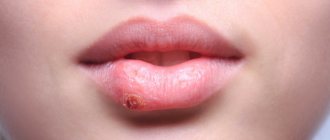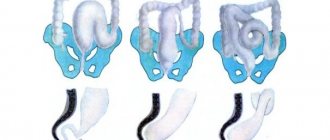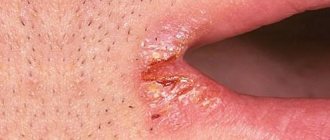White coating on the tongue is usually perceived as a symptom of the disease. A person, as a rule, does not consider his language. In order for us to stand in front of the mirror, stick out our tongue and begin to look at it, there must be some reason that prompted us to do so - discomfort in the throat or oral cavity or some other dissatisfaction with our health. And then we discover a white coating on the tongue (or, as they sometimes say, that our tongue is coated ). However, don't be scared right away. Even a healthy person can have a white coating on the tongue. On the other hand, plaque on the tongue can indeed be a manifestation of the disease. Therefore, it is useful to know how pathological plaque on the tongue differs from plaque, which is considered a variant of the physiological norm.
The nature of white coating on the tongue
Unfortunately, white tongue is not always the norm.
Moreover, most often it indicates malfunctions in the functioning of internal organs. But this does not mean that all people who notice a light “mush” on the organ of taste should urgently rush to see a dentist or therapist. There are two situations where you don't need to worry about coated tongue:
- The symptom appears in the morning (immediately after waking up). Most people have a coating on their tongue after the night. There's nothing wrong with that. Bacteria living in the oral cavity multiply actively. The speed of their spread is especially high if a person ate something sweet or drank alcohol in the evening. A thorough morning toilet will put everything in its place.
- The symptom appears soon after eating. If a person ate blueberries, drank strong tea or coffee, wine, a change in the shade of the mucous membranes is not a deviation. Soon the pink color will return on its own. Sometimes this just requires brushing your teeth or performing a hygienic rinse. If the meal was not associated with the consumption of products containing chemical and natural dyes, but the shade of the muscle organ changes each time, you will still have to consult a doctor.
Cleaning your tongue with a home irrigator
As an alternative to going to the dentist for professional oral cleaning, you can consider a home irrigator. This is a special device equipped with replaceable nozzles and a reservoir that supplies liquid under pressure to clean the space between the teeth. When choosing an irrigator, you must be guided by the following requirements:
- the number of attachments should be a multiple of the number of family members who will use it, because this is a means of individual use;
- It is highly desirable that the kit include devices for cleaning the tongue and dentures of any configuration;
- it is necessary that the device be equipped with a pressure regulator when supplying liquid, because everyone has an individual level of tooth sensitivity;
- It is better to choose a larger tank volume, this will allow cleaning more efficiently;
- It would be great if it was also equipped with a water supply regulator, that is, it could be a stream of water or a spray.
This device will save you the time and money needed to visit the dentist's office.
Diseases as the cause of white plaque
If your tongue is always coated and your mouth smells bad, you should be wary. During an in-person examination, the doctor will examine the condition of the oral cavity and make a preliminary diagnosis. It is possible that the patient will have to undergo blood tests and undergo an ultrasound of the abdominal organs, because the most likely cause of the problem described is diseases of the gastrointestinal tract and liver. They are always the first to be excluded.
Among the pathologies in which the muscular organ becomes covered with a white coating that is difficult to remove:
- Glossitis. Inflammation of soft tissues, leading to changes in the color and structure of the tongue. Has a viral or bacterial nature. The patient experiences swelling, burning, pain when chewing and swallowing food. His diction is also impaired. In advanced cases, the pathology causes phlegmon of the neck.
- Gastritis. Acute or chronic inflammation of the mucous membranes of the stomach. Manifested by epigastric pain, dyspepsia, nausea, decreased performance. A “telling” symptom of gastritis is plaque on the organ of taste. It is associated with the pathological activity of pathogenic microflora.
- Candidiasis. Mycotic infection of the mouth caused by opportunistic yeast-like fungi Candida albicans. The mucous membranes swell and swell. They bake and crack. The lips begin to peel, and pockets form in their corners. The tongue and throat with thrush are very coated. It gets to the point where the kefir-like slurry can be easily removed with a brush or a teaspoon. But this does not help improve the situation, as soon its volume increases. This happens until medications are taken that destroy candida.
- Chlamydia. The pathology is sexually transmitted and, it would seem, should have nothing to do with oral health. However, in practice everything turns out differently. The violation provokes a sharp decrease in immunity. When the number of chlamydia increases greatly, the oral cavity becomes affected - a sticky white coating appears on its walls.
- Pneumonia. Whitish folds on the sides of the muscular organ most often indicate pathologies of the upper respiratory tract. They can be removed with a brush and paste, but they quickly return as the main provoking factor (pneumonia) continues to act.
- Chronic alcoholism. Alcohol addicts are diagnosed with multiple diseases of internal organs. After binge drinking, they are faced with a white tongue and an unpleasant aftertaste. In this case, the plaque caused by ethanol intoxication never reaches the tip of the tongue and is always localized at its root.
- Lung oncology. Cancer patients with lung damage often have a coated tongue.
The described symptom also occurs among pregnant women. The reason for this is a sharp change in hormonal levels. After childbirth, the situation returns to normal on its own.
Should you see a doctor?
Having a general idea of what type of plaque may be associated with a serious illness, it is worthwhile to be guided by it. It should also be taken into account that all serious systemic diseases, in addition to plaque on the tongue, have a number of formidable symptoms that cannot be ignored. It can be:
- pain;
- vomit;
- diarrhea;
- constipation;
- skin rashes;
- increase in body temperature, etc.
Plaque on the tongue must be taken into account along with other signs and contact a specialist for diagnostic measures.
What causes a white coating on the tongue?
Generally speaking, among the most common causes of plaque:
- Infectious diseases. With them, pathogenic microorganisms begin to multiply at an unprecedented speed. Hence - weakness, painful symptoms and altered condition of the mucous membranes.
- Immune failures. If the immune system does not begin to work at full strength, conditionally pathogenic microflora is activated. Then disturbances in the activity of the stomach occur, the tongue turns white due to abundant deposits of plaque.
- Diseases of the stomach and intestines. They can be acute or chronic. Most often they occur due to the spread of Helicobacter. With enterocolitis, plaque appears on the root of the organ; with gastritis, it covers the entire tongue.
- Side effects of drug therapy. Antibiotics are especially aggressive. They suppress the growth of pathogenic bacteria, at the same time disrupt the acid-base balance and destroy beneficial flora.
- Tobacco smoking. Smokers' tongues are usually white, yellow or gray. Nicotine has a detrimental effect on the microflora of the mouth and the entire body as a whole.
- Helminthic infestations. If parasites appear in the body, the condition of the oral cavity may worsen.
Associated symptoms and what they indicate
In addition to the white tongue, serious diseases reveal themselves by other symptoms :
- burning in the stomach, headache and vomiting - gastric ulcer;
- pain under the left rib, dry mouth – pancreatitis;
- intestinal upset, nausea and vomiting, dry mouth - gastritis;
- itching, burning in the mouth, microcracks - thrush;
- swollen gums, grayish deposits on the inside of the cheeks – stomatitis;
- the appearance of holes in the teeth, bad breath, pain - caries;
- enlarged lymph nodes, hoarse voice, bad breath – gonorrhea;
- weakness, lethargy, sore throat - sore throat.
Important! Healers in the East believe that a specific area of the tongue is assigned to a certain organ. So, if plaque appears at the tip, it means that the heart hurts; at the root, the intestines are suffering.
Treatment
Therapy begins with examination and examination. It is important to establish the cause of the plaque. It is clear that a person cannot do this on his own. For preventative purposes, to reduce the amount of deposits, it is important:
- Remember the rules of oral hygiene. You should brush your teeth two to three times a day. Moreover, this must be done carefully and carefully, without making rough traumatic movements. It is important to use a good brush and quality toothpaste.
- Use dental rinses throughout the day. You cannot skimp on the funds of this group. Cheap formulations include harmful mixtures and, if used regularly, negatively affect oral health.
- Periodically clean your tongue with a special spoon. Movements should go in the direction from the root to the front.
It is extremely important not to forget about professional oral hygiene. It is indicated even for people who take very good care of their teeth. During the procedure, the doctor uses an ultrasonic scaler, which removes both soft and hard dental plaque. Thanks to this, there are much fewer places where pathogens can spread.
Folk remedies
Folk remedies are used for rinsing and oral administration.
Infusions for oral administration
Anti-inflammatory for the gastrointestinal tract
St. John's wort
For herbal infusion, take the ingredients :
- St. John's wort;
- oregano;
- mint;
- lemon balm;
- 500 ml boiling water.
Preparation:
- Mix dry herbs together.
- 1 tbsp. l. pour boiling water over the mixture.
- After 2 hours, filter the composition.
Take 1 glass twice a day half an hour before meals. The course of therapy is 10 days.
For gastritis
Watch
For gastritis, boil the medicine from the following ingredients :
- watches;
- mint;
- yarrow;
- 200 ml water.
Preparation:
- Mix the herbs together.
- Take 1 tsp. spoon of mixture.
- Fill with water and leave for 15 minutes.
Take 50 ml three times a day.
With flax seeds
Flax seeds
To improve the functioning of the gastrointestinal tract and intestinal motility, try a medicinal decoction. It is prepared from the following components :
- 200 ml purified water;
- 3 tbsp. l. flax seeds.
Preparation:
- Fill the grains with water.
- Boil and simmer for 10 minutes.
- Wait until it cools down.
- After 20 minutes, drain into a container through a sieve.
Take half a glass of the decoction before meals.
Alcohol tincture with propolis
Propolis
Propolis tincture helps with stomach ulcers, gastritis, and liver diseases. It is prepared from the following ingredients :
- 10 g propolis;
- 90 ml of alcohol (70 degrees).
Preparation:
- Grate the chilled propolis and place it in a glass container.
- Fill with alcohol and cover with a lid.
- Place the tincture in a dark place for 2 weeks.
- Shake the contents periodically for better dissolution.
- After 14 days, filter the product.
Drink the tincture in the morning, 20-30 drops dissolved in 50 ml of water. The course of treatment is up to 1 month. It is permissible to buy a ready-made propolis-based product at the pharmacy.
To strengthen the immune system
aloe leaves
To strengthen your immune system, consume a decoction of the following ingredients :
- 150 g aloe leaves;
- 300 g liquid honey.
Preparation:
- Remove the thorns from the aloe.
- Mash the leaves of the plant thoroughly.
- Pour warmed honey over them.
- Leave the product to knock.
- Reheat and strain.
Take the medicine before meals, 1 tsp. spoon.
Antimicrobial infusions for rinsing
With salt and soda
Salt and soda
The simplest and most popular recipe involves the use of the following components :
- 1 tsp. soda;
- 1 tsp. salts (sea, iodized or table);
- 200 ml boiled water.
Preparation:
- Dissolve salt and soda in 200 ml of warm boiled water.
- Stir the grains.
- Cool the liquid.
Rinse your mouth 3-4 times a day. To enhance the effect, you can add 2-3 drops of iodine.
With oak bark
Oak bark
For the recipe you will need :
- 1 tbsp. l. oak bark;
- 300 ml boiling water.
Preparation:
- Pour boiling water over the oak bark.
- Cover with a lid and wait 2 hours.
- Strain the mixture and let it cool.
Rinse your mouth three times a day after each meal. The course of treatment is 2 weeks. Every day you need to prepare a fresh infusion.
With chamomile and sage
Chamomile and sage
An antiseptic decoction is prepared from the following ingredients :
- 1 tbsp. l. chamomile;
- 1 tbsp. l. sage;
- 400 ml water.
Preparation:
- Mix dry herbs and add water.
- Simmer the mixture over low heat for 15 minutes.
- Let the broth brew.
- Filter and let cool.
Use the decoction to gargle 3-4 times a day for 14-20 days. This is an excellent remedy against inflammatory processes.
Carefully! Herbal infusions can stain tooth enamel.
Oil rinse
The oil can eliminate food debris and bacteria.
Rinse your mouth with it for 10 minutes. After this, the surface of the tongue will become lighter. Olive, grape, and sunflower oil are suitable. You can rinse your mouth with rosehip extract, sea buckthorn extract, and aloe juice.
Preventive measures
To prevent plaque formation, follow preventive measures , namely:
- clean your tongue and teeth regularly;
- if you have dentures, treat them with antiseptic;
- avoid close contact with people with candidiasis;
- After each meal, rinse your mouth with water;
- follow the vaccination schedule;
- drink drinks based on ginseng and lemongrass;
- carry out hardening under the supervision of a doctor;
- do not take antibiotics without a doctor's prescription;
- immune strength is constantly strengthened;
- do not get carried away with alcoholic drinks and smoking;
- promptly treat gastrointestinal pathologies;
- try to be less nervous;
- Visit your dentist 1-2 times a year for an oral examination.
Particular attention should be paid to your diet. It must be complete and balanced. Eat foods rich in vitamins and minerals, fats and proteins every day.
Include the following products in your menu:
- soups and broths;
- dairy products;
- whole wheat bread;
- fruits and vegetables;
- sauerkraut;
- river and sea fish;
- dried fruits;
- fiber;
- cereal porridge;
- jelly;
- natural juices;
- pasta.
Eliminate from your diet:
- soda;
- alcohol;
- spicy dishes;
- everything is fatty and fried;
- chocolate;
- candies:
- cakes;
- White bread;
- baked goods;
- smoked meats;
- canned food
The following rules for caring for dentures deserve special attention :
- Don't sleep with your dentures on at night. Handle devices with care.
- Clean their surface thoroughly before use.
- Store orthopedic structures in warm water or a special solution.
- Do not use powders for cleaning.
If you suspect problems with the oral cavity, contact your clinic immediately.
3 ways to clean your tongue:
Possible complications
If you consult a doctor in a timely manner, you can prevent the development of complications. If you neglect the pathology, you can provoke the appearance of plaque and face the following consequences :
- gastritis of the stomach;
- ulcer;
- bowel cancer;
- liver cirrhosis.
Complications also depend on the cause of the white plaque:
- Caries . In the future, pulpitis may appear, which is an inflammation of the nerve of the tooth.
- Stomatitis . If this pathology is not treated, it will become chronic. An aphthous form of the disease may develop, affecting a large area of the mucosa.
- Candidiasis . The fungus can spread to organs and cause nephritis, meningitis, and endocarditis.
- Pancreatitis . The disease can cause swelling of the brain and disrupt kidney function.
- Gastritis . Pathology can lead to a decrease in the secretory function of the stomach and impaired absorption of nutrients.
- Cold . The most common complications are otitis media, tonsillitis, rhinitis, sinusitis, tonsillitis.
- Diabetes . The disease can cause damage to the kidneys, liver and even death of the patient.
- Hypovitaminosis . Lack of vitamins can lead to disability.
The prognosis is made individually and depends on the patient’s health status and the advanced stage of the disease. In the case of pathologies such as HIV, it is unfavorable. It is only possible to temporarily support the body and continue to follow body cleansing procedures.
In the absence of quality treatment, serious complications can occur. Therefore, do not risk your health and at the first alarming symptoms, consult a doctor.










